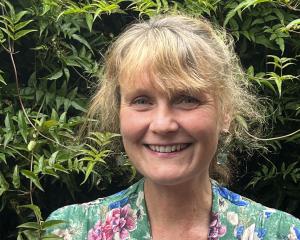The University of Otago's 2016 budget reveals an institution bracing for flat student enrolments and a challenging financial situation.
The budget, tabled at yesterday's council meeting, forecasts a growth of just five equivalent full-time students (efts) overall - six more domestic efts, and one fewer international efts - than 2015 end-of-year numbers.
The modest forecast comes after years of falling student numbers at Otago and stagnating numbers across the country.
Student numbers in 2015, which fell 619 efts (3.3%) short of budget, were low because of ''a combination of demographic changes, labour market conditions, the ... new university entrance standard, and competition between universities'', chief financial officer Sharon van Turnhout wrote.
''Looking to 2016, we remain in a period which is a difficult time to forecast with confidence.''
In large part because of the student number problem, Ms van Turnhout said at yesterday's meeting, the university was heading into ''yet another year of constrained funding''.
The university's ongoing budgetary challenges reflected the fundamental difference between a university and a commercial business, Ms van Turnhout said.
Unlike a business, the university could not cut back on supply in response to decreased demand - lower student numbers - and then bounce back to full supply easily or respond quickly to fluctuating interest in different diplomas. Mathematics professors could not teach history, she said in explanation.
''It's important we maintain our capacity for the future.''
The university was expecting a 3.7% ($3.89 million) increase in income from domestic tuition fees, mostly because of the 3% tuition fee rise approved by council earlier this year.
Shortfalls elsewhere would also be offset by a government funding increase of about $8.5 million.
Still, the budgeted drop in operating surplus - to $14.9 million from $15.6 million in the 2015 revised budget - was ''not ideal'', Ms van Turnhout said.
The council also approved yesterday a 2% increase ($14) in student sundry fees for Dunedin-based students, and a $3.50 increase in direct payment for health services, bringing the total fee to $10.
The fee hike marked the first time the health services fee had been raised in a decade, Ms van Turnhout noted.
To fully compensate for the lower number of students paying the sundry fees, she wrote, the university would have had to raise the fees by 7%.
The 4% hike was a compromise to ''reduce the level of increase to students''.
At yesterday's meeting, Otago University Students' Association (OUSA) president Paul Hunt thanked Ms van Turnhout for working with OUSA on the fees.
The fee increase was unanimously approved.
Advertisement












